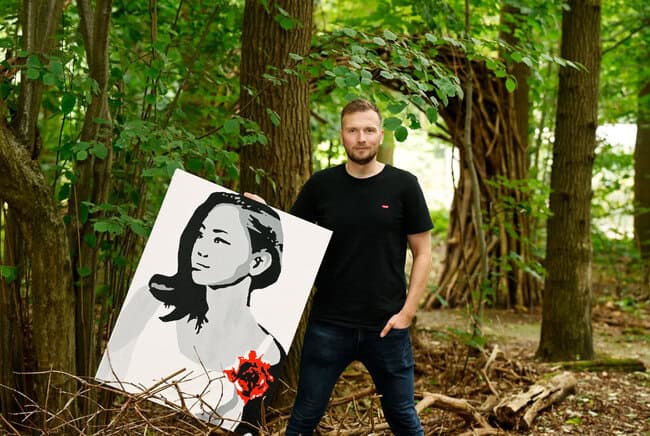
For a Cursor Special about the explorer, Monique van de Ven and Tom Jeltes interviewed eight pioneers of the Eindhoven University of Technology.Today: Carlijn Bouten, professor of Cardiovascular Regeneration. “I’m always looking two, three steps ahead.” Pictures by Bart van Overbeeke.
We publish one TU/e-Pioneer-story every day – Read the complete series here
Renowned partly for her work on a heart valve made of the body’s own materials, Carlijn Bouten is Professor of Cardiovascular Regeneration at TU/e. Her various grants include an NWO Aspasia grant and a Vici grant, and a Zwaartekracht grant for 18.8 million euros. She is a member of the Royal Netherlands Academy of Arts and Sciences. Enabling the human body to heal itself of diseases and other physical failings with the aid of biomaterials is the stuff of dreams for Bouten.
What question would you like to be asked?
“Where I started: at Mechanical Engineering. The Department of Biomedical Engineering was just starting and the then Dean Jan Janssen asked me whether I could start working with the living material. Just try bringing a living cell into TU/e; it was a huge pioneering task, involving everything from new air extraction systems and waste systems and ramped-up security to having to sign a paper to say that we weren’t engaged in warfare. Building managers and people at other departments were particularly taken aback when we said we wanted a lab with ‘biohazard’ written on the door. ‘Are you sure we should be doing this?’ But young and dynamic as we were, we weren’t deterred.”
What led you to become a pioneer?
“Even as a child I was curious and said that I wanted to become a professor. I was also very involved in sports, but that led nowhere – so I thought, well then, I’ll use my head instead. That curiosity still drives me. Everywhere I look I see opportunities and never, as it happens, obstacles. That’s not to say I haven’t learned some restraint, after all, it can consume you entirely – and it sometimes leads to resistance among others.”
What is it about your personality that makes you a pioneer?
“Again I’d have to say that powerful drive and curiosity. And I’m always looking two, three steps ahead. That’s how I coach my people too, I ask a lot of questions. ‘Okay, now we know this. What next?’ I want to excite others. Yes, people sometimes find that difficult. That’s when I hear: ‘You’re so fanatical, just stop for a moment.’ But I have learned to tone that down a little. Until the next thing comes along and I might start getting jittery if no one seizes that juicy morsel; I am someone who finishes things.”
How do you relax?
“That’s a bit of a problem. It sounds boastful, but my mind never stops creating ideas. Switching that off is really hard. In 2004 I had a major burn-out and I’ve since had training to help me. Awareness training, soft skills training: what motivates me now and how can I switch that off? But I have to say I’m a bit stubborn. If I don’t have the opportunity to ponder and reflect, I become restless. In a plane, for example, if I am traveling for twelve hours, I can relax. Then the ideas keep coming but I don’t have to do anything with them right away.”
What will it take for you to say that your life has been a success?
“Let me put it this way, I am happy that I have another twenty years of work ahead of me. My life is all about curiosity; I never stop looking, looking for answers. I don’t need to be remembered, more than anything I want to understand things – although there will always be unanswered questions. In my field, I would very much like to achieve something for the patients I meet. The heart valve must soon become a real part of clinical practice. Its potential for curiosity is now minimal, my work on it is over, finished.
And also this: when it comes to healing, the human body has kept on adapting throughout evolution. Now it is we who are making the adaptations, using engineering. That is pioneering but also scary. I hope that towards the end of my life we reach a balance of sorts in this respect. You must also have respect for life itself; as an engineer, you can’t change everything. I am also curious where that limit lies.”









